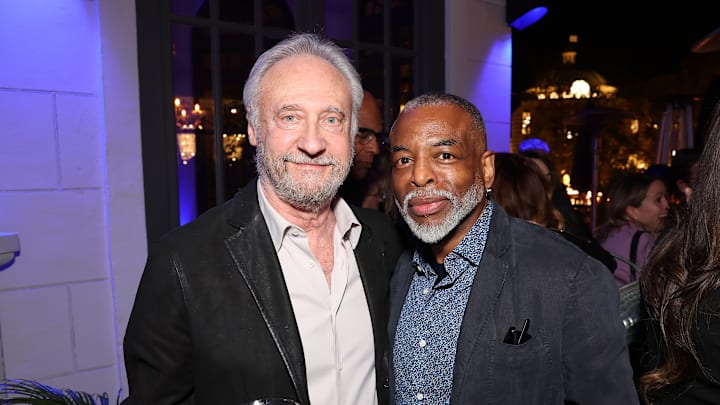Star Trek is one of the hardest shows to ever act on. It's not a surprise if you're paying attention to the quality of performers they recruit. They often look for the more accomplished, but less noteworthy talent. Usually people with stage experience. it's paid off, as very rarely do you have complaints about the talent on screen; unless we're talking about guest stars.
Why is Star Trek so hard to pull off, however? Well, the hours are long, the uniforms are anything but comfortable, and sometimes the crew has to deal with some serious elements depending on the location of that episode's sets. That's not exactly why Star Trek is known for being a hard beast to tackle.
As Jonathan Frakes points out in a 2023 interview with Deadline, it's the "technobabble" that comes with your standard Star Trek episode. Speaking to the publication, he points out how much harder the scripts that LeVar Burton and Brent Spiner got were as opposed to his. After all, Burton and Spiner played the two most technologically focused characters of the main crew; engineer Geordi La Forge and Lt. Commander Data, a fully autonomous android.
That's why Frakes would go on to say;
""For us, I’d never worn a silly spandex spacesuit with no pockets. I didn’t know how to act without my f*cking hands in my pockets. It was a lot to learn. And the technobabble. God bless Brent and LeVar [Burton], who were given the bulk of it.""
Frankly, we underscore the severe difficulty of the dialogue in a show like Star Trek. Knowing that so much of it is made-up, or rarely ever used words in a regular setting, the sheer stress of hitting the words correctly in a handful of tries has got to be unnerving. Especially when you realize that every take is more money. Each dollar, especially on a show like The Next Generation, where Frakes, Burton and Spiner are shown bright, was so tightly scrutinized.
It's not easy being a Starfleet officer but few people ever think it's because of the dialogue. Yet, it is.
